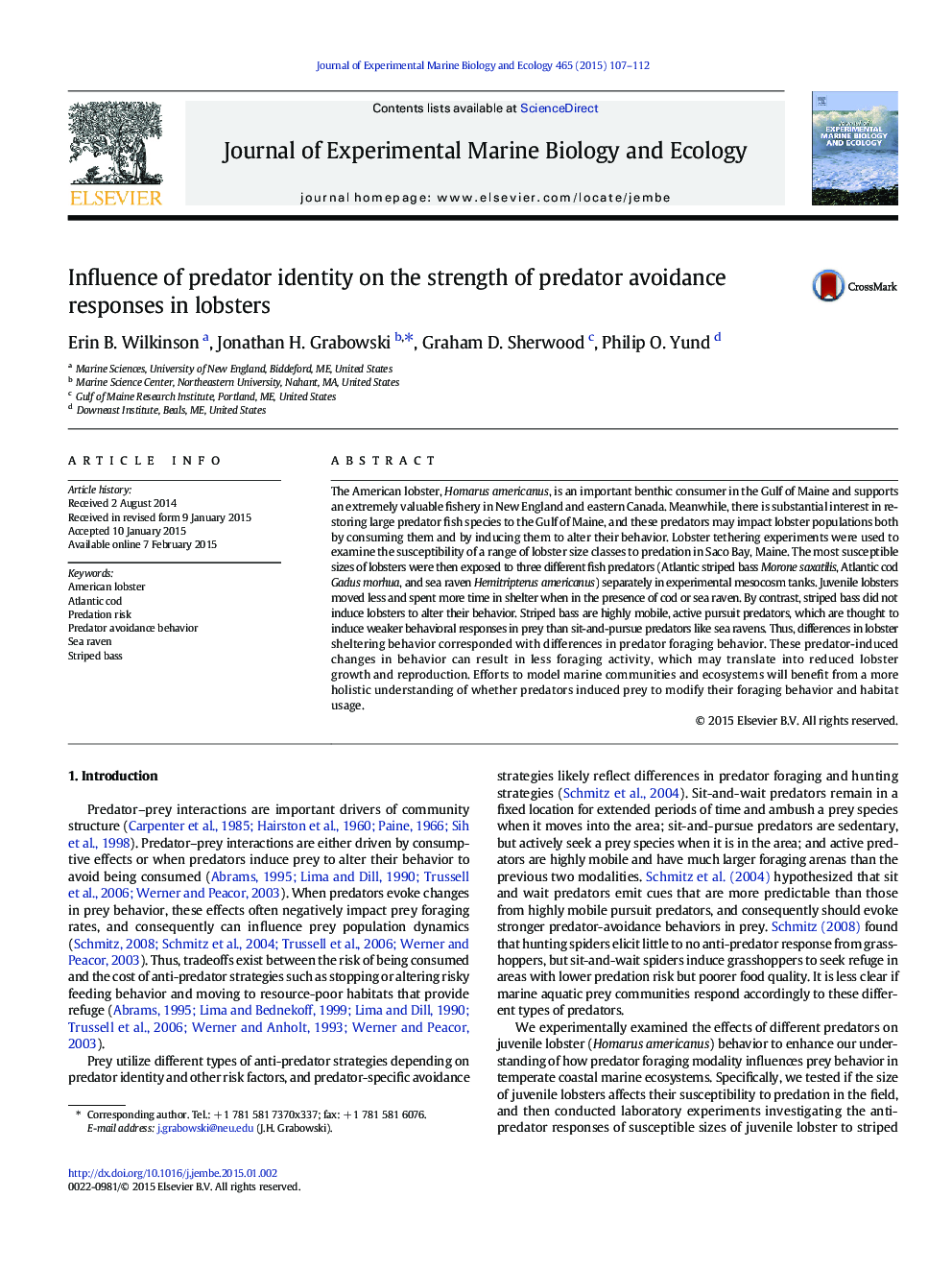| کد مقاله | کد نشریه | سال انتشار | مقاله انگلیسی | نسخه تمام متن |
|---|---|---|---|---|
| 4395517 | 1618410 | 2015 | 6 صفحه PDF | دانلود رایگان |
• We identified in the field that juvenile lobsters were most vulnerable to predation.
• We examined how predator identity influences shelter use by lobster.
• Cod and sea raven induced juvenile lobsters to move less and increase shelter use.
• By contrast, striped bass did not induce lobsters to alter their behavior.
• Differences in lobster sheltering behavior were predicted by predator foraging modalities.
The American lobster, Homarus americanus, is an important benthic consumer in the Gulf of Maine and supports an extremely valuable fishery in New England and eastern Canada. Meanwhile, there is substantial interest in restoring large predator fish species to the Gulf of Maine, and these predators may impact lobster populations both by consuming them and by inducing them to alter their behavior. Lobster tethering experiments were used to examine the susceptibility of a range of lobster size classes to predation in Saco Bay, Maine. The most susceptible sizes of lobsters were then exposed to three different fish predators (Atlantic striped bass Morone saxatilis, Atlantic cod Gadus morhua, and sea raven Hemitripterus americanus) separately in experimental mesocosm tanks. Juvenile lobsters moved less and spent more time in shelter when in the presence of cod or sea raven. By contrast, striped bass did not induce lobsters to alter their behavior. Striped bass are highly mobile, active pursuit predators, which are thought to induce weaker behavioral responses in prey than sit-and-pursue predators like sea ravens. Thus, differences in lobster sheltering behavior corresponded with differences in predator foraging behavior. These predator-induced changes in behavior can result in less foraging activity, which may translate into reduced lobster growth and reproduction. Efforts to model marine communities and ecosystems will benefit from a more holistic understanding of whether predators induced prey to modify their foraging behavior and habitat usage.
Journal: Journal of Experimental Marine Biology and Ecology - Volume 465, April 2015, Pages 107–112
